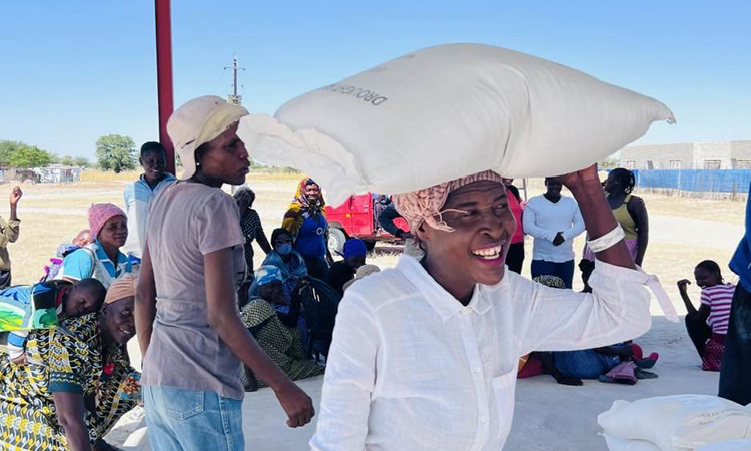…traditional leaders warned
The Council of Traditional Leaders has warned its members not to sell drought relief food to buy alcohol.
Speaking in Windhoek at the the opening of the 25th meeting of the Council of Traditional Leaders yesterday, council chairperson Immanuel /Gâseb said drought relief food must reach its intended beneficiaries.
“I urge traditional leaders to ensure that the distributed food is used sustainably for household consumption and not traded for alcohol,” he said.
/Gâseb called on the Office of the Prime Minister to review the food distribution process to ensure equal allocation, especially for households with a higher number of dependants.
From July to date, 1.15 million Namibians have faced high levels of acute food insecurity, requiring urgent action to reduce food gaps and protect livelihoods.
At least 331 000 households are beneficiaries of the government-funded drought relief programme, with the majority falling under the traditional authority.
/Gâseb noted that communities face critical water and sanitation issues, with a lack of infrastructure, such as boreholes and water pipelines, having led to the loss of life.
“I urge the responsible sectors, such as the office of the governor, Ministry of Agriculture, Water and Land Reform and the regional councils to collaborate with traditional authorities to find permanent solutions to these issues.”
/Gâseb criticised traditional leaders for not implementing succession plans.

MEETING … President Nangolo Mbumba with Council of Traditional Leaders chairperson Immanuel / Gâseb yesterday.
“I call upon all Namibians, especially members of the royal families, to respect customary laws and resolve succession disputes according to your custom and traditions and not through the courts of the common law,” /Gâseb said. He highlighted that these disputes can leave traditional authorities without leadership and disrupt their administration.
Speaking at the same event, president Nangolo Mbumba also blasted traditional leaders for internal disputes.
“Such disputes do not only result in conflicts and lack of unity among members of the traditional community, but also often result in the government being forced to intervene and use public resources, which could have otherwise been used for development and other critical needs such as education, health and uplifting the poor,” he said.
Mbumba further said court disputes over succession taint the dignity of traditional authorities.
“Unfortunately, the integrity of our traditional authorities and leadership nowadays has come under threat, due to infighting and instances of leadership succession disputes that continue to threaten the peace and harmony within our regions.”
President Mbumba said time and resources are used for conducting investigations and resolving disputes, which can often easily be resolved by adhering to customary laws.
“As traditional authorities, your primary interest should be the advancement of the wider community and augmenting traditional values and norms. Let us learn to place our collective interests above our personal interests,” he added.
Urban and rural development minister Erastus Uutoni said the government funds the traditional authority’s office, transport, fuel and capacity building training. “The government provides financial support by giving monthly allowances to the chiefs, six senior traditional councillors, six traditional councillors, secretary and driver for all recognised traditional authorities.”
Uutoni noted that almost all traditional authorities are provided with government vehicles, which are maintained by the ministry.
“In addition, we also provide fuel money to all recognised traditional authorities on a quarterly basis.”
Uutoni said budgetary provisions have been made for building offices for traditional authorities.
“The ministry further facilitates the hosting of the Council of Traditional Leaders annual meeting, where we provide both financial and human resources support during meetings,” Uutoni added.
Stay informed with The Namibian – your source for credible journalism. Get in-depth reporting and opinions for
only N$85 a month. Invest in journalism, invest in democracy –
Subscribe Now!






